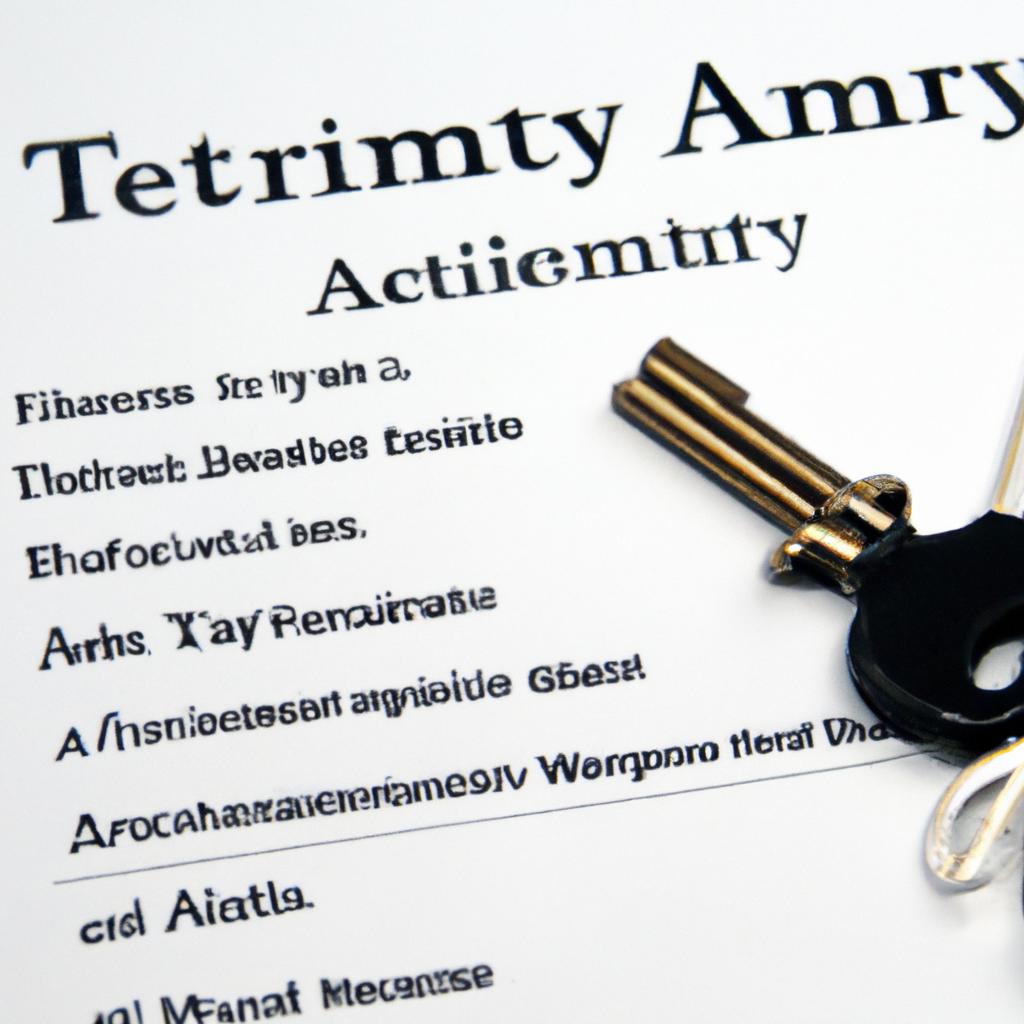In the intricate world of estate planning and probate administration, the testamentary affidavit stands as a crucial document, wielding the power to simplify the often complex process of distributing a deceased individual’s assets. As seasoned legal professionals at Morgan Legal Group in New York City, we understand the significance of this document in ensuring the orderly transfer of assets according to a decedent’s wishes. In this article, we aim to delve into the intricacies of the testamentary affidavit, shedding light on its purpose, contents, and significance in the realm of estate planning and probate. Join us as we unravel the nuances of this essential legal instrument.
Understanding the Purpose of a Testamentary Affidavit
When it comes to estate planning, a testamentary affidavit plays a crucial role in ensuring that the wishes of a deceased individual are carried out according to their last will and testament. This legal document serves as a sworn statement that attests to the validity of the will and confirms that all necessary steps have been taken to administer the estate properly.
It is important to understand that a testamentary affidavit is not something that should be taken lightly. To ensure that the document holds up in court and effectively carries out the wishes of the deceased, it is essential to work with an experienced estate planning attorney. At Morgan Legal Group in New York City, our team of professionals can guide you through the process of creating a testamentary affidavit that is legally sound and will stand up to any challenges that may arise.

Key Elements to Include in a Testamentary Affidavit
When creating a testamentary affidavit, there are several key elements that should be included to ensure that the document is legally valid and accurately reflects the wishes of the testator. These elements are crucial in establishing the authenticity and validity of the document, as well as providing clarity and certainty regarding the distribution of assets and belongings.
Some are:
– **Identification of the Testator**: Clearly identify the testator by including their full legal name, date of birth, and address.
– **Statement of Sound Mind**: Include a statement affirming that the testator was of sound mind and not under any undue influence when creating the affidavit.
– **Distribution of Assets**: Clearly outline how the testator wishes to distribute their assets, belongings, and properties.
– **Executor Nomination**: Nominate an executor to oversee the administration of the estate.
– **Witness Signatures**: Have the affidavit signed by at least two witnesses who can attest to the testator’s signature and state of mind at the time of signing.
– **Notarization**: Have the affidavit notarized to add an extra layer of authenticity and validity to the document.

The Importance of Ensuring Compliance with Legal Requirements
When it comes to estate planning and probate matters, one crucial document that often comes into play is a testamentary affidavit. This legal document serves as a sworn statement that confirms the validity of a deceased person’s will and the signatures present on it. It is a critical piece of evidence that can help streamline the probate process and ensure that the deceased’s final wishes are carried out as intended.
In the realm of estate planning, ensuring compliance with legal requirements such as having a properly executed testamentary affidavit is paramount. Failing to do so can lead to unnecessary delays, disputes, and even legal challenges. By taking the necessary steps to ensure that all legal requirements are met, individuals can provide peace of mind to their loved ones and protect their assets in a clear and legally binding manner.

Best Practices for Drafting and Executing a Testamentary Affidavit
When it comes to drafting and executing a testamentary affidavit, there are several best practices that should be followed to ensure the document is legally sound and meets all necessary requirements. One of the most important aspects of a testamentary affidavit is to clearly state the intentions of the testator regarding the distribution of their assets and property after their passing. This should be done in a clear and concise manner to avoid any confusion or misinterpretation.
Additionally, it is crucial to include specific language in the affidavit that meets the legal requirements of the jurisdiction in which it will be executed. This may include referencing relevant laws and statutes, as well as using terminology that is commonly accepted in the legal field. It is also advisable to seek the guidance of a knowledgeable estate planning attorney to ensure that the testamentary affidavit complies with all legal standards and regulations.
Q&A
Q: What is a testamentary affidavit?
A: A testamentary affidavit is a legal document that confirms the authenticity of a person’s last will and testament after their death.
Q: Why is a testamentary affidavit important?
A: A testamentary affidavit is important because it provides a sworn statement by a witness that the will is genuine and accurately reflects the deceased person’s final wishes.
Q: Who can create a testamentary affidavit?
A: A testamentary affidavit is typically created by a witness to the signing of the will, who can attest to the circumstances surrounding its creation.
Q: What information is included in a testamentary affidavit?
A: A testamentary affidavit includes the witness’s name, contact information, and a signed statement affirming the validity of the will.
Q: How is a testamentary affidavit used in the probate process?
A: A testamentary affidavit is used to prove the validity of a will and facilitate the distribution of the deceased person’s assets according to their wishes.
Q: Can a testamentary affidavit be challenged in court?
A: Yes, a testamentary affidavit can be challenged in court if there are concerns about its validity or if there is reason to believe that the will is not genuine.
Closing Remarks
In conclusion, understanding what a testamentary affidavit is can help navigate the complex process of probate and estate administration. By providing a sworn statement regarding the authenticity and validity of a deceased individual’s will, this legal document plays a crucial role in ensuring that their final wishes are carried out according to their intentions. If you find yourself needing to create or validate a testamentary affidavit, it’s important to seek legal guidance to ensure compliance with the law. Thank you for taking the time to learn more about this important aspect of estate planning. Good luck in your journey through the world of probate law!

